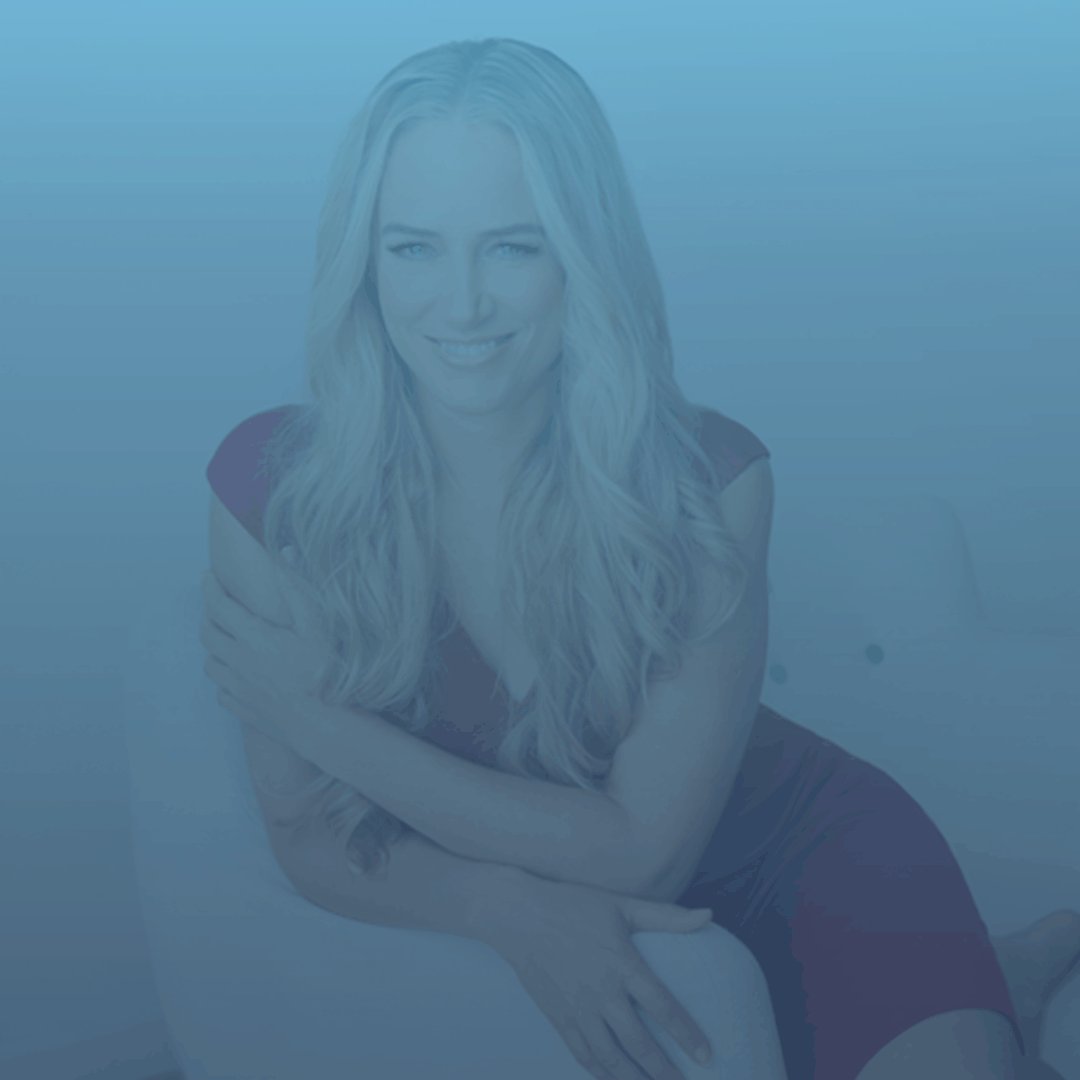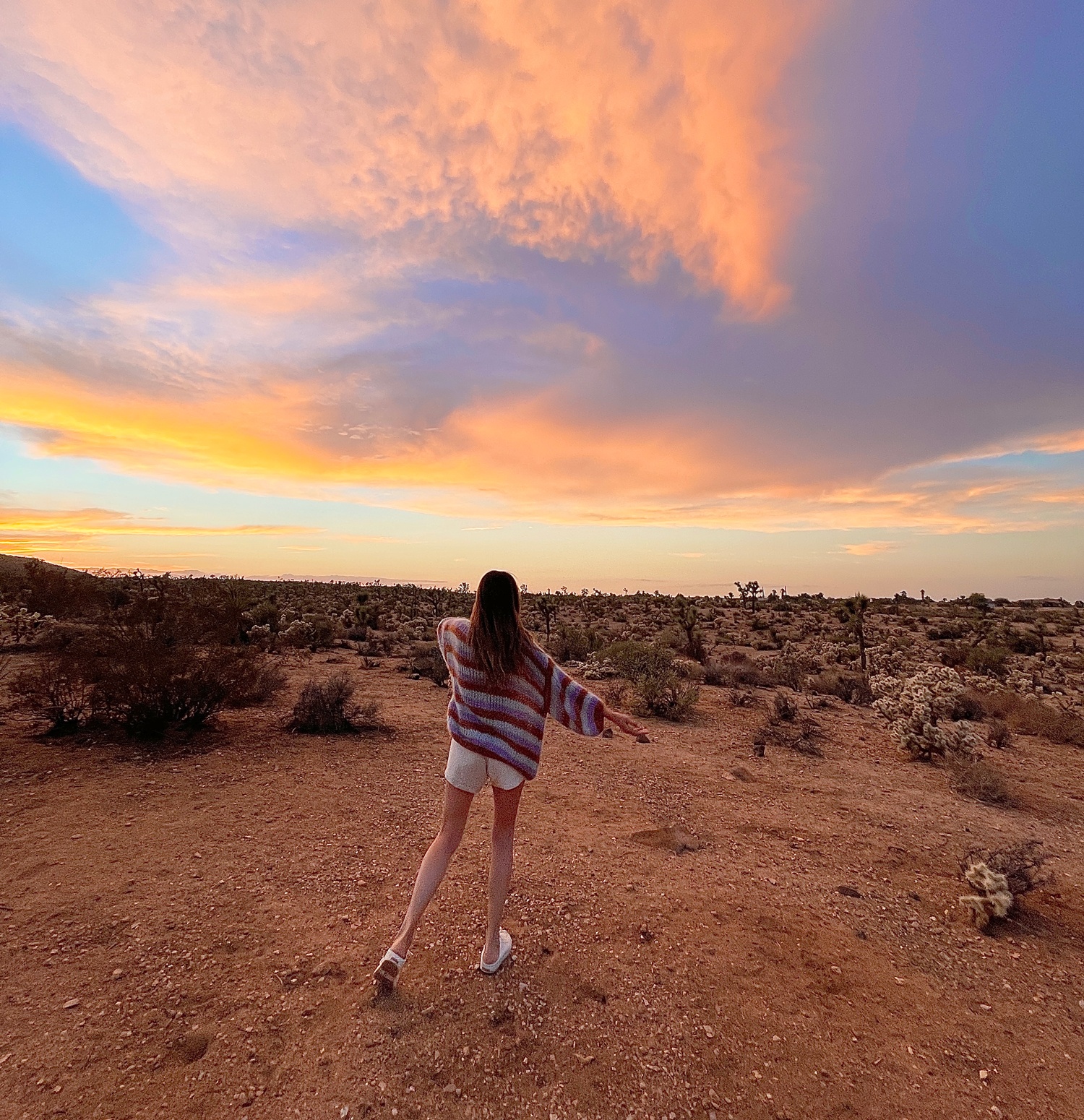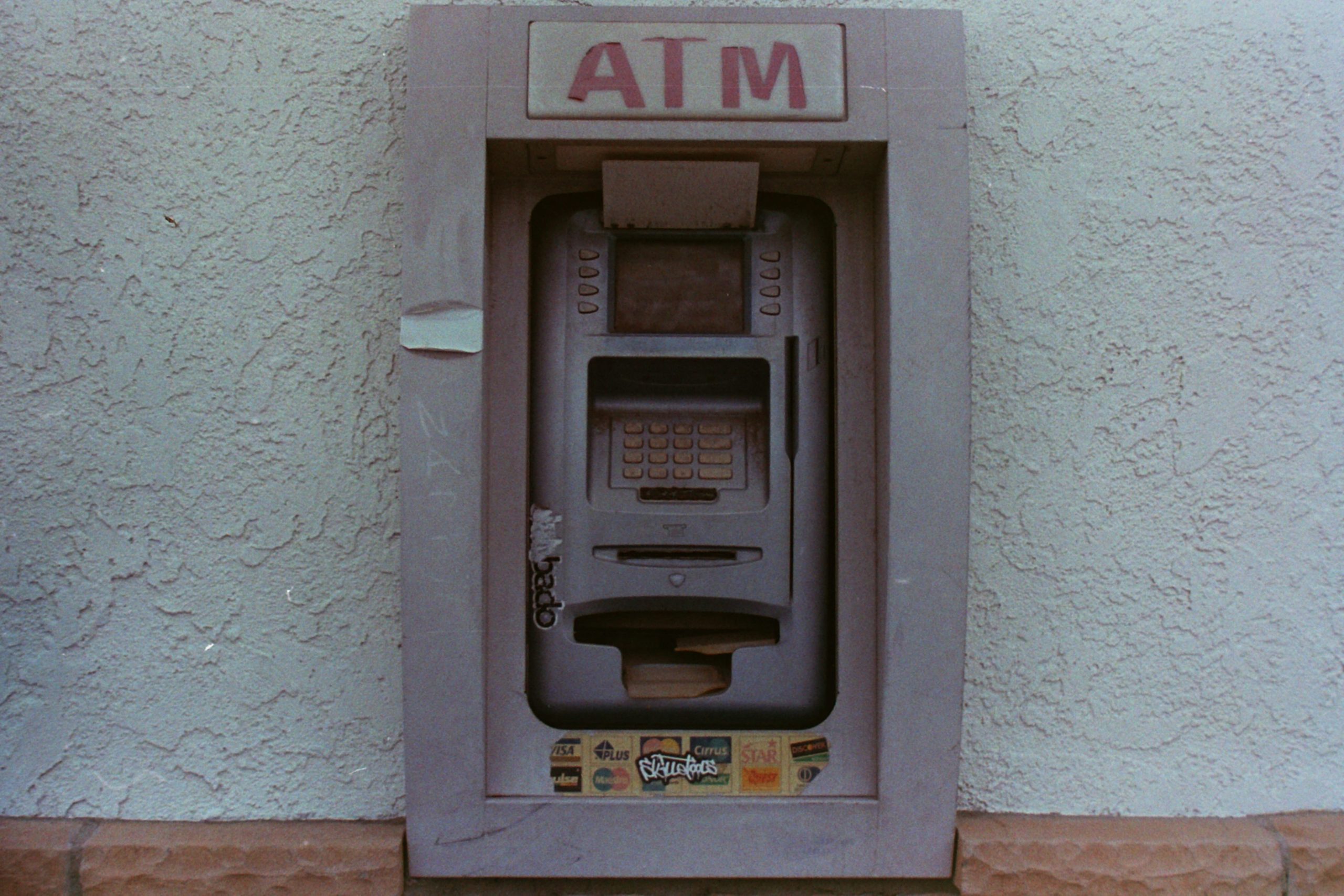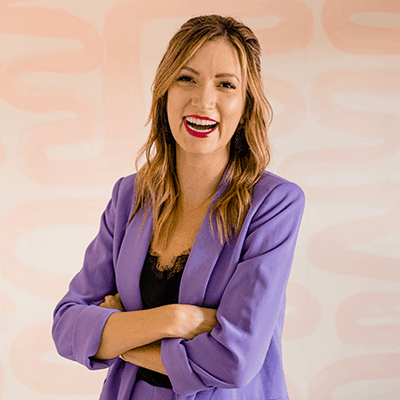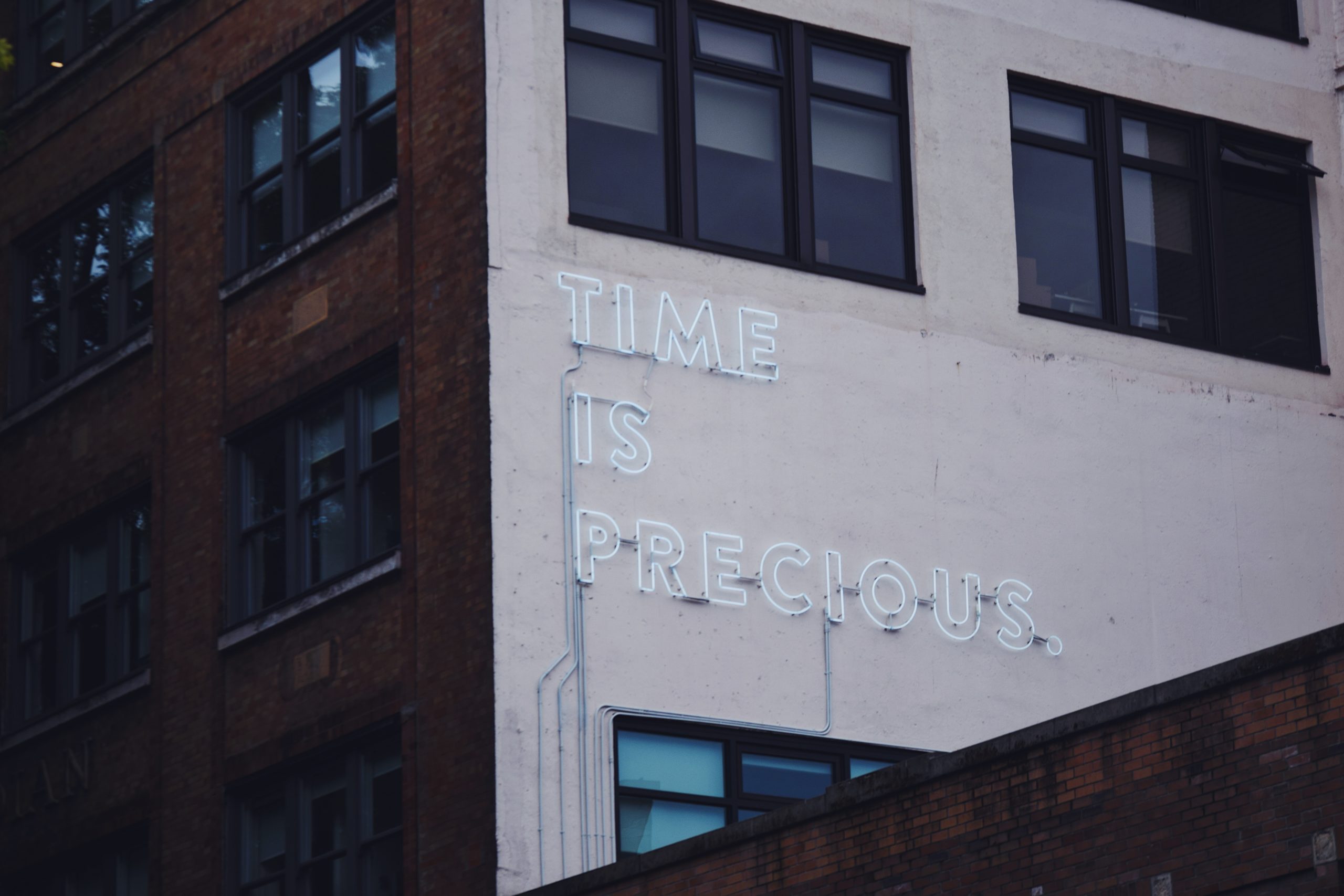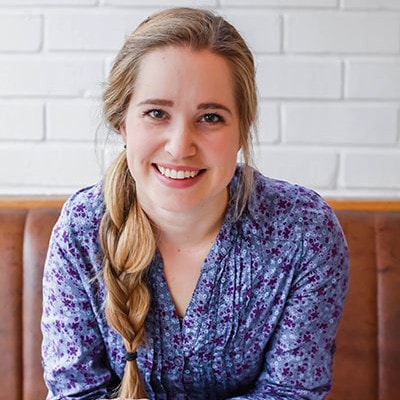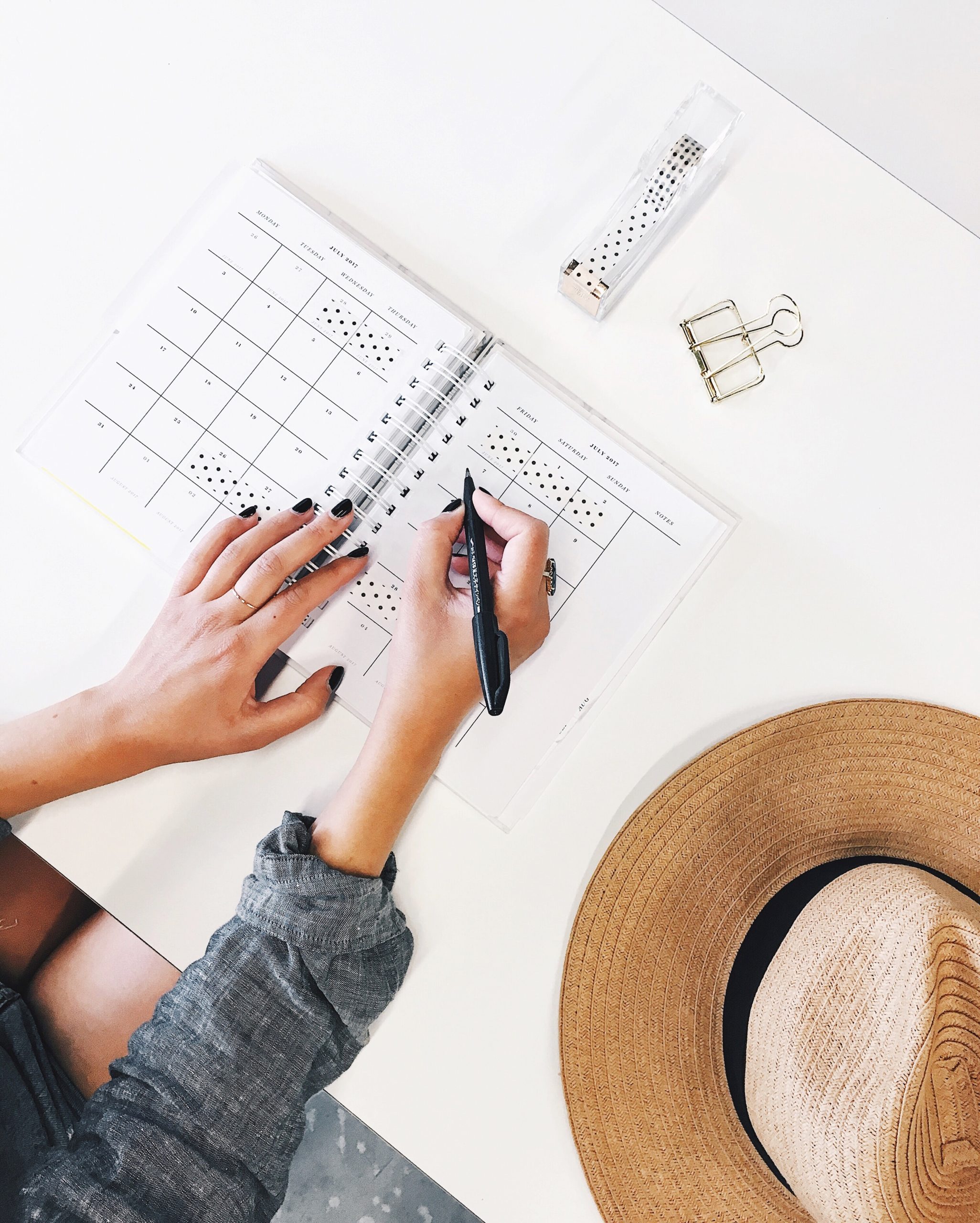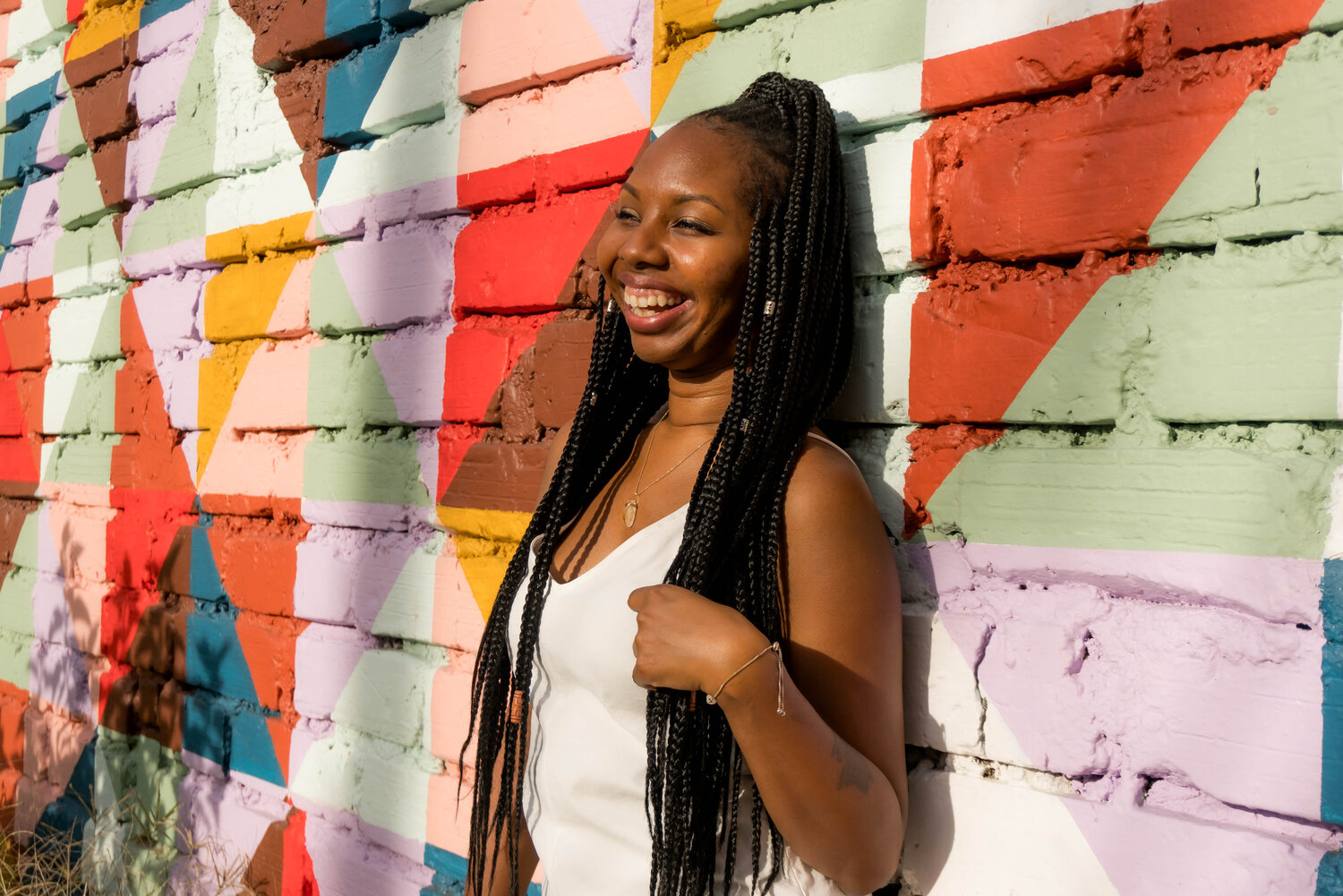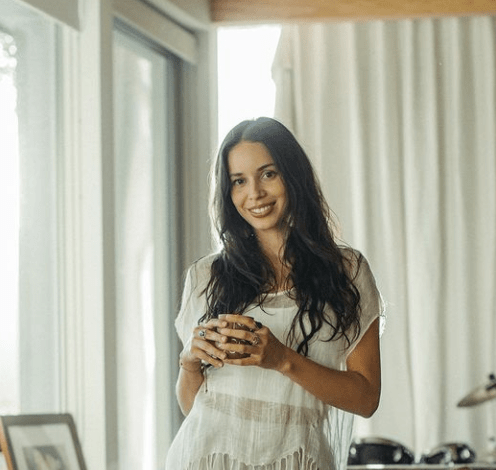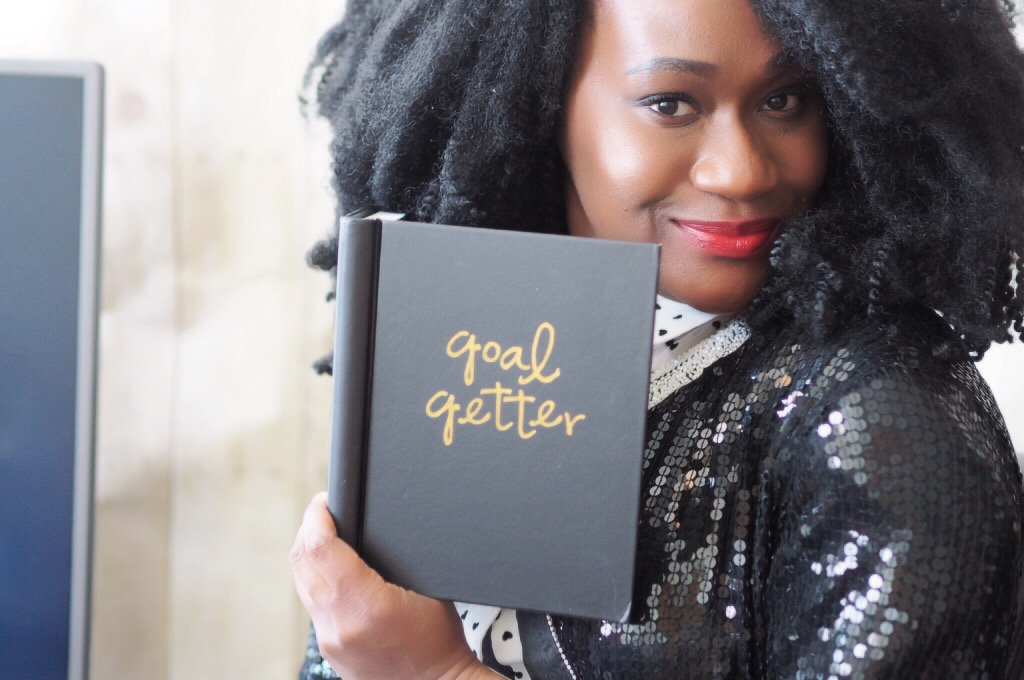This episode with Resiliency Expert, Cheryl Hunter, is one of my all-time favorite episodes. It moved me in an extraordinarily meaningful way.
When Cheryl was living abroad at the age of 18, she was abducted, beaten, sexually assaulted and held captive for several days. Now, she’s devoted her life to helping other people overcome immense challenges. She’s been featured in Forbes, The Huffington Post, Fast Company, CNN and has presented multiple TED Talks that will move you to tears.
But this conversation with Cheryl is far from sad or upsetting; it’s one of the most inspirational and freeing interviews that I’ve had on this show, and I know you’ll leave feeling peace and resiliency too.
We talk about things like how her experience of being abducted shaped the rest of her life’s path, as well as how to find the beauty and joy WHILE experiencing pain (rather than only after the struggle is over). Cheryl also shares her unique resiliency framework and the key strategies that can help us overcome anything. This episode will make you laugh, tear up, find the beauty in the struggle, but most of all, it’ll inch you closer to who you really are.
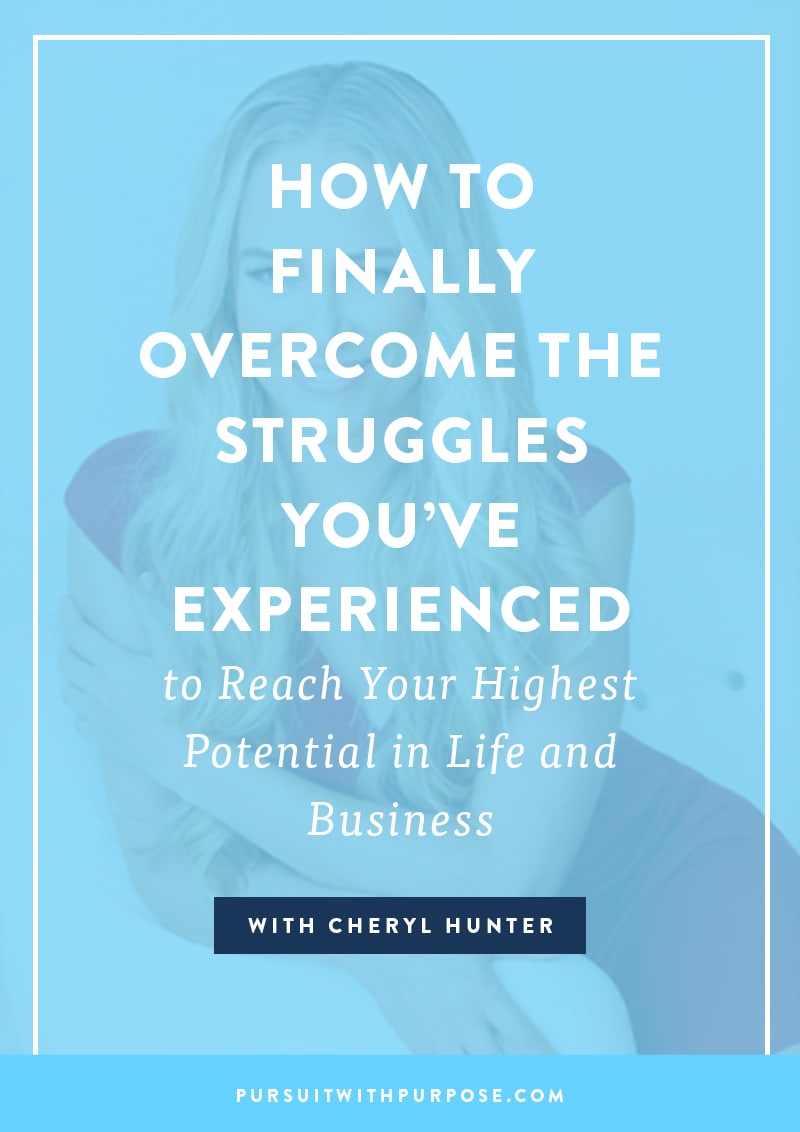
Check out the episode below:
In this episode, you’ll hear about things like…
- Cheryl’s “silent hell” that she endured and how looking for the “open doors” helped her move forward.
- Why hoping for a safe, uneventful life is no way to live (and how to find joy in your struggles as they’re happening).
- How we can surrender to the future and what Cheryl considers to be the deepest calling of our souls.
- What happens to us when we experience something traumatic (and why you haven’t been able to fully recover, years later).
- How Cheryl uses her Proven Practices List in her daily life (and you can, too).
- Cheryl’s strategies to practice vulnerability with your community and create authentic connections that don’t feel “icky.”
Again, I can’t tell you how much I loved this interview with Cheryl. I’m actually co-working with a friend today in Los Angeles and I told him he had to listen to this one. He did, and the whole time we’ve been working, he’s been turning to me saying, “WOW, this part is so good.” Trust me, this episode is a must-listen. It will change you and make you think about your life and challenges in new, expansive ways.
Links from the interview:
- Cheryl’s Website
- Cheryl’s Coaching Program, Break Free Formula* (email info@cherylhunter.com and mention Melyssa for a free gift upon enrolling!)
- Cheryl’s TEDx Talk, The Magnificence of Imperfection
What do you think?
I’d love to hear your thoughts on this episode. Did Cheryl’s story resonate for you? What have you overcome recently, in business or in life? Leave a comment below and let’s chat. 🙂
Here’s how to subscribe + review
Want to be the first to know when new episodes are released? Click here to subscribe in iTunes!
Also, podcast reviews are pretty darn important to iTunes and the more reviews we receive, the more likely we’ll be able to get this podcast and message in front of more people (something about iTunes algorithms?). I’d be extremely grateful if you left a review right here letting me know your favorite part of this episode.
#PursuitWithPurpose
Loving the podcast? I encourage you to use the hashtag #PursuitWithPurpose to show our PWP tribe how you live your purpose everyday. Plus, you’ll get to sift through the hashtag to find other business owners who care about community and connectedness over competition and comparison. And I’ll be reposting some of my favorite images and stories, too. 🙂
Thank you for listening!
Transcript
Read the Interview Transcription HereHey everyone! Thanks for tuning in today. Now to be honest, there are a few things I could say about today’s interview that would do it justice. This episode is one of my all time favorites and moved me in an extremely meaningful way. So today’s guest is Cheryl Hunter, who’s an expert in resiliency. When she was living abroad at the age of 18, she was abducted, beaten, sexually assaulted and held captive for several days. Now she’s devoted her life to helping other people overcome immense challenges and traumas. She’s been featured in Forbes, The Huffington Post, Fast Company, CNN, and has presented multiple TED talks that will move you to tears. I know they moved me to tears. This might sound like heavy stuff that we’re talking about today and part of you may be thinking right now, well I don’t want to listen to this right now. I’m in the car or I’m at work or I just don’t want to feel sad or upset, and I sure as heck don’t want to have to think about the hard stuff that I’ve been through in my life in this moment right here. If that sounds like you, then I urge you to stick around because this conversation is far from sad or upsetting. It’s one of the most inspirational and freeing interviews that I’ve had on this show, and I know you’ll leave feeling peace and resilience too.
Now during this episode, Cheryl and I talk about things like her experience of being held captive and how that shaped the rest of her life’s path, as well as how to find the beauty and joy while experiencing pain, rather than looking back years later and only then feeling grateful for the struggle. We also talk about Cheryl’s resiliency framework and the key strategies that can help us overcome anything. This episode will make you laugh, cheer up, and find the beauty in the struggle, but most of all, it will inch you closer to who you really are. Let’s dive in.
Melyssa Griffin: Hey Cheryl. Welcome to the show!
Cheryl Hunter: Thank you, Melyssa. I’m so happy to be here.
Melyssa Griffin: Awesome! I am happy to have you here because I was watching your TED talk this morning and just falling, tears everywhere. It wasn’t even just emotional, but it was impactful the way that you wove your story together. So I’m excited to be able to share that with everyone today too. It’s going to be great. So I want to start by asking you where did you grow up and how did that contribute to your path in life.
Cheryl Hunter: I am a cowgirl from Colorado originally. I grew up in a little mountain town that was super, super, super remote. I mean really looking out in virtually all directions, there’s no sign of civilization of any kind, like no buildings except for our barn, horse barn.
Melyssa Griffin: Just you and your family and your animals.
Cheryl Hunter: Yes, all the animals. As a kid, it was just like the most fantastic place to be from. It was like oh the adventure. There were old homesteads that had long been abandoned and one old car that somebody apparently had started driving from the east and ended up near Rye, Colorado, and left it there and then just kept somehow heading west I presume. It was a fantastic place to be as a little kid. And then as a teenager, I just thought oh man, I want to get out. I want to know people that are I’m not related to and see people that wear fancy clothes or something – anything, anything, anything, people of any kind. And so, I made a plan with my friend. We were going to get out and we were going to go someplace. My big wish was that when I got there, I was – wherever we were going, I would figure out a way to stay and not have to come back to Rye, Colorado – actually we’re from outside of Rye, Colorado, in the suburbs if you will… It was my big plan to figure out a way to get into the city and somehow stay.
Melyssa Griffin: Yeah, so what was your master plan? Where did you end up going?
Cheryl Hunter: Well we planned all kinds of stuff. I had thought well, let’s go – we didn’t just want to go to a city. I mean it’s not like we were going to get all the way to Denver. We were like let’s go big, let’s go to Europe.
Melyssa Griffin: How old are you at this time?
Cheryl Hunter: I’m 18.
Melyssa Griffin: Got it.
Cheryl Hunter: And so, we made our big plan; we were going to go to Europe. We got Euro passes. I mean it was before cellphones. Lord only knows, we were just so naïve, but that was it. We were going and we got there, wide eyed trying to not look like tourists. Immediately, it became evident that we were tourists. We had these gigantic suitcases with us. We thought we needed to bring everything we owned, kind of thing.
Melyssa Griffin: And why did you choose Europe? What was there that you wanted to go find?
Cheryl Hunter: Well, it wasn’t just that I wanted to go to a big city, because my family and I had traveled to big cities here and there, but it seemed so big, and so attractive, and so dramatically different. And also, I had played hooky from school one day and thought, I’m going to figure out what I’m going to do with my life. I read some magazine and it said* glamour… too highfalutin. They were looking for models it said, and boy, if they could find a model, somebody who was tall enough. They might even make them an actress if they knew how to speak. I was like, well heck, my mom’s an English teacher and I know how to speak pretty well. I’m tall enough. I was on the boys’ basketball team. So it was probably more of a function of being from a town of eight people than my ability or height. I thought that was – anyway, Europe it was. So I thought well where do they use* Europe – like France and Europe where all the fashion comes from, let’s go there. It wasn’t particularly well thought out Melyssa. It just was big city, bright lights, different, exciting. That was about all we needed at 18 to go and that’s it. This is the big journey.
Melyssa Griffin: That’s about all most people need at 18 I think, for their master plan. So it sounds like you were on the right track. And then once you got there – so you went to Europe, had this idea that you’d become a model and do your own thing in the big city. And then what? What was your experience like once you got there?
Cheryl Hunter: Well a little help from Glamour Magazine, I thought that could be one thing. And then ironically, no sooner did we get to France than a man with a big fancy looking camera around his neck, walked up and said, “Hey, are you a model? I can make you one.” I thought holy mackerel, that’s how easy it is to become a model here? Why didn’t I come before? Shoot! He said, “Just come with me and my friend, and we’ll do this.” My friend who I had gone there with was like, “No, you are not. No, you’re not doing that. We have things we’re going to do.” He started to argue with her. I should have known at this point, but he started to argue with her and said, “You see this pinky ring? It’s worth more than your father will ever make in his lifetime.” I’ve never seen anybody with a pinky ring.
Melyssa Griffin: You’re like a pinky ring, that must mean something out here.
Cheryl Hunter: It seems awfully different than anything I’ve seen before. I’ve never seen any cowboys or ranchers at one of those shoots. He must be something. My friend said, “Over my dead body.” She had plans. She met some cute guys and she went off with them. I snuck off and went with the guy with a camera around his neck because I was going to become a model. Pretty much figure out for yourself that they were not photographers, they were criminals. They drugged me. They offered me a glass of wine. It was the day time. I was like no I’m good, I wanted to be clear headed for whenever we took these photos. They were like oh you Americans… I thought oh okay, well I don’t want to be perceived as like some stuffy American, unsophisticated person. So yeah, I’ll have a glass of wine, Sauvignon Blanc. I’d heard of it. I didn’t know what the hell it was, but sure okay. I drank it. It must have been drugged and the next thing I know, I’m sitting in a car with my head out the window like a dog, just kind of looking up and my tongue out. That was that. When I came to, I was on some kind of construction site that was – nobody was there. They held me there and eventually dumped me in a park. I mean I sort of glossed over the real part of it. You can kind of fill in the gory details with your mind, two men and me. There I am, lying in a park and in Nice, France. Prior to this, never experienced pretty much anything bad really. I have no idea how to cope. The immediacy of it, I didn’t know what to do and I figured I just have to pretend it didn’t happen. I mean this is a – I’m a child still at the time. The best I could come up with is just pretend it didn’t happen. I could convince myself I thought that it didn’t. Plus, I thought oh I can never tell anybody else what happened. They’ll know that I’m dirty and ruined, and damaged, and stupid as could ever possibly be imagined. Who would be that stupid and gullible? And so, I set out to pretend it never happened. When I went back to my friend, we were fighting. We had fought quite a bit on the trip. We just never travelled together and we’re very young and argued… We were at that age where you just kind of stepped over things. So I’m like bruised all the heck and we just don’t say anything about it. My hair, he had chopped my hair off. I mean in some weird power play I guess, cut my hair off. My friend and I just don’t say anything.
Melyssa Griffin: And you’re probably thinking well I guess this is how it’s going to be, that we just don’t talk about this. This never happened.
Cheryl Hunter: Well, it’s easier – I certainly thought I can’t talk about it. I can’t. I would die if I have to revisit it. So I’ll just not talk about it forever more, but then the weirdest thing happened, Melyssa, which is I thought okay, I should be free now, I should feel – rather I am free, I should be happy now. Like how people talk about they get a new lease on life and they’re like every moment is wonderful. I felt like I was more captive than I was when they had me on the cement floor. I couldn’t figure it out and I thought why am I more trapped now. This doesn’t make sense. I just felt like I was truly in hell. I couldn’t get away from my screaming mind. I thought if I don’t get a hold of this, I’m going to have to either end this suffering or end it all.
Melyssa Griffin: Yeah, I can’t even imagine. And then what happened after that? So you were living in Europe, you were a model eventually. You were working as a model in Europe. How did you get to the stage where you’re at now, where you’re teaching people how to overcome adversity from this place where you were so trapped and hurt from what had happened?
Cheryl Hunter: The first thing I did is, like you said, decide to become a model. I thought well, what the heck. I had gone through all this in order to be a model. I’m just going to actually be one, and started doing that. I had no idea how to cope. Like I said, I felt like I was in hell, but this silent hell that I couldn’t talk about. I thought okay, I’m going to – I remember my mom who had been a very spiritual person, a yoga teacher – all this stuff. Thank God for that upbringing. There was a phrase called “go through the open door”. I thought I don’t know what that means exactly, but I’m going to just take it that whatever presents itself in front of me, is the open door. So if somebody would tell me about a book, I would read it, or a class, I would go there, or a coach, or a therapist, or a seminar, or a workshop. I didn’t care what it was, I just kept saying yes because anything was better. Hey, you want to volunteer at a soup kitchen? Hey, do you want to be a big sister? Yes, yes, yes, yes, yes. I didn’t know. Eventually, I started to see on my journey back – each thing I did gave me a little more space, a little step closer to objectivity. I started to see that I didn’t feel captive because I’d been captive. It wasn’t because I’d been physically trapped. I felt captive and trapped and stuck because that’s part of the human condition. I realized that we all face bad things, circumstances we wouldn’t have chosen. When we do, it’s like part of us gets trapped there and we get left behind. We leave a part of ourselves behind and we don’t move forward intact around that area. Something gets stuck compartmentalized, and we then start to compensate moving forward.
Melyssa Griffin: That’s a great point. I want to reiterate that because I think that’s such an important point, so beautiful. When we experience something that’s tough, a trauma or a struggle, like you’re saying, even if we move forward in our life in other ways, even if it’s 10 years later, we’re still stuck in that place in some way if we don’t find ways to heal from it. Is that what you’re saying?
Cheryl Hunter: It’s exactly what I’m saying. You phrased it so beautifully. Thank you.
Melyssa Griffin: It’s so important. Yeah, I love that you brought that up.
Cheryl Hunter: Nothing’s more common than it’s easier to see in somebody else, but nothing’s more common than somebody gets divorced and 10 years later, they’re still not dating again, or I had a bad experience speaking up as a kid so I just don’t speak up, or I act really funny and keep people – deflect them and keep them off my tail, or I can’t speak to people in positions of authority. I don’t feel comfortable because something happened in the past. So therefore, I make everybody like me. We get into the sort of convoluted compensation modes based upon a challenge or adversity or even a trauma that we face, and it forever changes us. I assert if we’re not wholly intact moving into the future, it doesn’t change us for the better. Yes, we may develop great things out of it and new competencies and strengths, but until we reconcile all the pieces of ourselves, we’re not all that we could be.
So to answer your question, I started going to some – I went to some personal development seminar. I felt better when I was there, so I just kept going. Eventually, I’d completed everything they had to offer, and I thought well the only thing left is to train myself to be a leader. I don’t think I want to do that, but I do want to keep coming back, I know that much. And so, I did. I just kept coming back and trained myself to be a leader, and started leading programs in the personal development space for some of the world leaders in that world, and then moved myself up till I was one of the top people who led any of those, and then for several – the world renowned companies that do that. And then, I also started – I got tapped to go lead professional development programs as well, like the sort of intersection between personal and professional development, going into companies and helping people perform their best. It was just what I did, but I found that there were still pieces for myself that were missing. When I dealt with people that were stuck at something, I would dig a little deeper with them and find often that what was at the source of it was, they’d experienced a challenge, an adversity, even like I said, trauma, and something got splintered off. They started compensating and hadn’t yet reclaimed themselves. I thought you know what, I figured out some things that work for me.
And so I started – well I left bread crumbs along the way, and then started codifying what I had done that worked, and trying it out with other people. I became fascinated with freedom and started really studying it, and not just reading like Victor Frankl and things like that that are immensely helpful. I started interviewing people myself that had been through extreme trauma. I was volunteering at old age homes, just to get out of my own head and be with people. There were a lot of Holocaust survivors there. This was 20 years ago. I was interviewing them, why people who share a room and had been bunkmates, one survived and the other one is still angry, why is that? War vets or survivors of extreme trauma, I started working with these people, interviewing them, and then eventually working with them and giving them these things I found had worked, and putting together a system of the things that I learned from all of them. Plus, by now I was leading personal professional development seminars for thousands and then tens of thousands of people. I started to do surveys myself like what makes people tick, are we confident – yes or no and why or why not, do you find you overcome challenges, yes or no, why or why not – very simple originally, that I put it all into a system. When I found people that were suffering and not moving past it, I was like hey, I got something here if you want to try it out. It’s worked on me. I won’t charge you or anything, but it’ll be a beta test, who knows. If you’re open to it, we can see if it works. No harm, no foul if it doesn’t. Just started testing things out with people. They were having good results and where they weren’t, I tweaked things, and took a lot of feedback. Just started working on my own education as I was leading these other programs, putting together the pieces I found were missing, I know that’s a long answer, but that’s how I got there, Melyssa.
Melyssa Griffin: Yeah, no I appreciate that. Do you feel like it’s important for people to go through these things, to experience trauma, to experience pain, or do you think life would just be easier and better if we never had to deal with anything like that?
Cheryl Hunter: Right, in a perfect world, it’s just smooth sailing. Yes, another easy day. Yes, I kept on thinking…I have this prayer that I would say aloud, like a mantra “to have the day be uneventful, please give me an uneventful day”. And then I started realizing that I was becoming somebody who I was proud of, and that it happened because of the adversity. I realized that saying I want an uneventful day and an uneventful life was beneath me and it was a disservice to who I was becoming and the difference that I was starting to be able to make for other people. It was a disservice there. And so, I realized that we can actually be better for the challenges we go through. I mean at the time, nobody wants to hear it. You’re like in the midst of a trauma and somebody goes, “well the universe never gives you more than you can handle”, and you kind of want to go “I’m going to…”
Melyssa Griffin: Punch you in the face. Hit you with a carrot.
Cheryl Hunter: An organic carrot of course…
Melyssa Griffin: We’re in LA, come on.
Cheryl Hunter: It’s like “no, don’t tell me that right now”. We don’t want to hear that. You’re not given more than you can handle. You’re strong, you’ll be stronger afterward. Nobody wants to hear that. And yet, there’s an undeniable fact to it which is if we can surrender to it, whatever that means for a person, if we can give in to it, not that we condone what happened, not that we’re saying yes to or acquiescing to the fact that what they did was right if there is the proverbial bad guy out there. If we can surrender to what’s occurred, then it’s possible to find the gold that it has for us. I assert there’s always gold at the heart of a challenge. So to your question, would it be better without it? Yeah, but that’s just not how life is. Since it bestows challenges upon us, we may as well rise.
Melyssa Griffin: I totally agree. I just want to acknowledge you for being so open and sharing this. I think what you’re saying is absolutely beautiful and it’s really moving to me. I really appreciate you.
Cheryl Hunter: Thank you.
Melyssa Griffin: You’re talking about surrendering to your past and surrendering to what was and what happened, and using it to find the gold of your life and to find the beauty. I loved your example of you praying for an uneventful day and then realizing that the eventual, painful things that happened to you are what made you into this amazing, strong woman that’s helping so many others. What do you think about surrendering to your future? I think a lot of us and myself included, have anxieties about what the future might look like, what bad things might happen, what struggles we might go through. How do we surrender to what may be?
Cheryl Hunter: Well, I can tell you what I found has worked for me. I kept finding in retrospect, every one of the challenges that I had faced that at the time seemed like no! This is horrible! I mean not to make light of it, but every one of the challenges that I faced at at the time seemed like the worst possible thing that could ever occur. Through the benefit of hindsight, I could see that they had shaped me. There had been gifts. They had made me a better person, even if it’s simply to be more compassionate. I thought what if – here’s a radical perspective. One thing I have clients do is keep that retrospective view and look to see what is at least one good thing that came out of the darkest of all the moments of life. It’s easier to do with the benefit of hindsight, but I thought what if I took a radically different view and started looking at things as they were occurring, as what if this is what it looks like when the universe has my back. Because in the past, I could see that it did that. Why wait till 10 years down the road to reframe? Why not right now proactively say yes to whatever is unfolding, even if it looks like – forgive me, a shit show? Recently, on my birthday – few months, whatever, how long ago back. I was in a car accident. I had just that morning said, “Okay, this is the year of all is well, the universe has my back. I’m going to say yes to everything that occurs as it’s occurring.” I leave, a girlfriend of mine, we were having breakfast and I was declaring all this. On the way, I rear ended, totaled my car. Hit my head, had a concussion, whiplash – all kinds of stuff. I was like at first, no. What the… And then I was like wait, I just said, I just freaking said. What if what it looks like to co-create with the universe is to be a hearty yes to right now, what’s occurring even the yucky? Because who’s to say it’s yucky? Who’s to say? So I said yes, yes, yes, okay, okay, alright. I’m going to take this like it’s a good thing. Furthermore, what the heck, it’s on my birthday. I’m going to say this is the universe’s birthday present to me.
Melyssa Griffin: I love that.
Cheryl Hunter: So it’s a few months down the road, but I can tell now there was somebody I went to see for pain, an orthopedic specialist, and we have fallen in love.
Melyssa Griffin: No way!
Cheryl Hunter: He just asked me to marry him as a matter of fact.
Melyssa Griffin: Are you kidding? Congratulations! That’s amazing!
Cheryl Hunter: Thank you. I swear I can’t imagine that I would have been open to the whole of it, had I not been looking out for the good, like okay I’ve said this is good, this is what’s happened. I’ve named it good and what’s happened is a car accident, so how do I find the good here? When we’re oriented around looking for what’s right other than kind of normal default which is I didn’t want it to go like this, and for this litany of reasons. Not to say that we’re oriented toward the bad, but’s a default setting to kind of go wait, but I didn’t want that, I wanted this. If we can just say yes to what’s occurring as it’s occurring, and finding, the present can bestow gifts upon us as well, not just looking at it and recontextualizing past challenges. So that’s how I see we can anticipate the future, mitigate anxiety, and have some presence in the present.
Melyssa Griffin: Wow, wow. What a powerful lesson. That is beautiful. That is such a brilliant example of literally just surrendering and being joyful in the moment regardless of what happens, and that it’s leading us somewhere. There’s a plan in mind. Do you even ever look back at the man with the camera, with the pinkie ring, and think maybe he was put into your path for a reason too, that maybe you were meant to do this work to help people in this way and he led you to doing that?
Cheryl Hunter: I do. Just first, I want to say this because I think it bears being said, I am not by default a happy person. I don’t mean I’m unhappy. I’m just kind of – I consider myself neutral. I have a sister, when we would wake up in the morning, she’d always go, “Good morning, sunshine!” As a little kid, I’d be “What’s good about it? What do you mean? Don’t be so happy! I’m trying to wake up over here. I need Cheerios.” And so, I don’t want to give some false reading like oh, I’m this Pollyanna who always finds the silver lining. No, I’m a human being who grapples with my internal state like anybody else. So there’s that. I wanted to pre-frame the whole thing with that.
Melyssa Griffin: Yeah and I appreciate that.
Cheryl Hunter: I just don’t want, if you’re sitting at home to think well yeah it’s easy for you, because it isn’t and it wasn’t. Yes, I do see him as a pivotal player. I had, as a girl, wanted to be with people and I wanted to get out of Rye, Colorado. I wanted to contribute in some way. I mean I think that’s the deepest calling of our soul for each of us, is to contribute something uniquely us. I wanted to contribute, but at the time, I thought I know how to shoe horses fairly well. I know how to ride horses very well. I know how to break horses okay. The key is you don’t break them, you don’t break their spirit, you keep their spirit. Really, I’m not the person to teach that. I don’t think there’s anything I can really teach. I know how to groom goats, that’s about it. It’s like I had nothing to give people. Somehow through this crazy, circuitous, unexpected path, I now have something to contribute. It’s funny you used the phrase “use it” a little bit ago. I named my first book, “Use It” and setbacks and success, because I found that life hands us whatever it hands us and we could use it, and it handed me, the guy with the pinkie ring. While I certainly am not saying I condone that kind of action, he should be off the streets, but there’s something about the role he played. If I can embrace what occurred as the transmuting force that it was, then it’s part of it.
Melyssa Griffin: Right. Yeah, I totally agree. I love that. So I know that you have a framework. I’m really curious to hear more about this too, a framework for becoming resilient in the face of huge challenges in your life. Can you tell us a little bit about what that framework looks like? How do we overcome adversity when we experience it?
Cheryl Hunter: Yeah, and just to be clear, a couple of the pieces that I was talking about are from that framework. One is starting by looking back and taking that retrospective view, and saying the worst, the darkest, the most difficult challenges in my life, what good came from those? Even if it seems like something horrendous – recently, I worked with a woman who lost her son and it looks like there is nothing good. She said she found her voice. That’s something. And so, find something, no matter how small. That is a benefit out of what’s occurred in the past and that you can really sink your teeth into and build from. And then like I said, another one is now – then the radical shift from there is to start to, in present time, find the good out of what’s occurring as it’s occurring. And again, I’m sensitive to the fact that what may be occurring is something you can’t comprehend how you’ll move through it; infidelity, death, illness, some kind of trauma. If we can find a way to find something beneficial out of it, no matter how infinitesimally small, I believe then, become co-creators of our lives and in fact, the architect of what’s occurring because we declare how it’s going.
Another thing is in the midst of a challenge, one of the most disempowering things that happens when we’re really dealing with challenges – like let’s look at over the past few weeks. There are hurricanes and fires and things happening, earthquakes. Things that happen, oftentimes challenges, are completely out of our control. One of the things that’s most empowering about them is we feel as though our entire existence is out of control. It’s almost like there’s a one, two punch that happens. The first one is the negative event or the challenge. The second one is the experience of having lost control or being out of control, and that can be as disempowering as the challenge itself. So one way to shift the locus of control from out there and separate from where we are, to with us – well there’s two ways to do that. One is to control what you can. We can’t control fires, earthquakes, floods, but we can control our response, we can control how we treat our neighbors, adhering to a bedtime. I mean anything, keeping our routines normal, practicing kindness, meditating, whatever it is – our ongoing practices that keep us our best. So there’s one thing.
Melyssa Griffin: I just want to touch on that real quick. That is something I’m so glad that that’s part of what you teach too, because that is something that in this past year, I’ve really started to own and learn myself, where I’ve worked with coaches. I remember one session with one of them where I was struggling with something in particular, and he asked me, “Well what can you control about this situation?” I tried listing things that I thought I could control and he convinced me otherwise. And then started asking me, “Well what can you control about your life?” I started listing a few things like my business, I can control my dog. He started convincing me again that really I have no control over any of those things. The only thing I have control over is myself. Like you said, your response, your daily practices, your level of kindness to other people. That for me, it was really grounding to know that if I don’t have control over anything else, then I might as well just surrender to whatever is going to be and to work on myself and my own response in a way that brings me as much peace as I can muster up for myself. So I love that you said that and you teach that.
Cheryl Hunter: It’s so beautiful what you said, “as much peace as I can muster up for myself”. It’s so beautifully said. We look at peace like almost like it has to – like a bird, kind of a light on our shoulder, oh, it’s not here today, I guess I can’t have it – rather than it’s something we have to muster up, we have to create, we have to generate. You bring me to another piece of this framework. I give people an exercise called the Proven Practices List. The assertion is oftentimes we operate with our tanks on empty or even worse, how it often looks in reality is we operate with our tanks at a deficit. You ever find like you stop kind of disproportionately? Like hangry as a state of being? Ongoingly*, wow, I got a kind of disproportionately bent out of shape when that person cut in front of me… I think it’s because we’re not practicing, like seriously a practice, something ongoingly we put into play, the things that fill our tanks. So I have people create a proven practices list, like proven when you do them, they put you in a good state. They help you muster peace or self-confidence or an experience of well-being, euphoria even – whatever it is. Since not all of them work all the time, come up with at least a dozen. I tell people stretching, go for 25. Those things you can do that reliably shift your state and do at the very least, one every day. At first, I thought it was self-indulgent to do those, and then I remembered one of my mother’s fabulous quotes again – it wasn’t from her. I can’t remember who said it, but “you can’t pour from an empty cup”. If in fact what we’re here to do is contribute in some way, we have to ensure that our own tanks are filled so we can provide or give to another. So create a proven practices list, things that always shift your space unless they don’t. That’s why you got a list of 25. Do them, fill your tanks as the ultimate contribution to the planet, operate on a full tank.
Melyssa Griffin: Yeah, yeah. I love that. I love that reframe on self-care and self-development because you’re so right. It can feel indulgent like I don’t deserve to do these things, I should be getting to work or I should be doing this other stuff. Like you said, if we’re not operating, firing on full cylinders, then we’re not giving to the world, the greatest impact that we can have. So I love that. I completely agree.
Cheryl Hunter: I’m so glad. Oh, I need to do stuff for other people right now. Yeah, at half efficiency? It’s like do kind of lame, half-assed work – no! Fill your tank. Do it great and do it in a shorter period of time. That’s the ultimate hack, right?
Melyssa Griffin: Yeah seriously. What are some of those proven practices for you?
Cheryl Hunter: My number one all time favorite is riding a bike on the bike path on the beach.
Melyssa Griffin: Oh, that sounds awesome. That sounds like it combines a lot of good practices.
Cheryl Hunter: Oh it does. Exercise is one, so there is one. Taking off my shoes and standing in the grass or standing on the ground of whatever kind. Talking to my mom, brother and sister. Laughing. I go watch Bugs Bunny and Road Runner hour on YouTube. I mean I have a whole list of things… Another one is – I don’t know if you remember Schoolhouse Rock.
Melyssa Griffin: I do. I sure do.
Cheryl Hunter: … a little Conjunction Junction…
Melyssa Griffin: What’s your function?
Cheryl Hunter: Totally! It’s like I just keep adding to the list. When I pass 50, I was like “dang, this is really fun!”
Melyssa Griffin: That’s amazing. I’m going to create my list after this. That sounds exciting.
Cheryl Hunter: It’s really effective. It’s not just keeping your tanks full, but then if you start to feel off, anytime you’re like whoa, I’m not bringing my full self here. Even like a tired afternoon slump, I’m like alright, it’s time to do one of those. It’s time to pull out the proven practices list. You get cross with a colleague, a partner, a friend – I’m like okay, it’s time for us to go to our opposite corners and do a little PPL time.
Melyssa Griffin: If only every work space had the PPL time.
Cheryl Hunter: Right. I mean Google’s got the sleep pods, why not a Schoolhouse Rock pod?
Melyssa Griffin: I’m with it.
Cheryl Hunter: I have a client who’s like I have gotten every episode of The Love Boat. That’s her show. There’s another one who – she works at a company where there is a slide that goes from the second story to the first story. They had taken over an abandoned or a former mall, shopping mall and they kept the slide in there. She said every day she has to go down the slide. If she ever walks by, she’s like alright I got to – sorry, excuse me… Whatever has you return to you. Part of it is like if you nurture that kid part of you, it’s like you kill two birds with one stone. You’re taking care of you in a way that only you can and just getting back on track. Oh my God, I love talking about this stuff, Melyssa. Thank you so much for having me today. It is truly my life’s purpose.
Melyssa Griffin: Oh this is amazing. I’m absolutely loving all of this, especially Schoolhouse Rock. I’ve got to say that’s my favorite part.
Cheryl Hunter: Feel free. As we say in our group programs when somebody comes up with an awesome proven practice, steal freely.
Melyssa Griffin: Oh I like that. I might have to peek at your proven practices list some time and steal some for mine. So I know you were telling us about your resiliency framework. Was there anything else that you think is really impactful for people and overcoming things?
Cheryl Hunter: Yes, I’m going to give you a senior level one. I’m kind of pre-framing it like that because I occasionally get some pushback on this one, people misunderstand it as something that I’m not saying. Another way – remember I told you there were two ways to stop the experience of the world spinning out of control? Which can be one of the most debilitating experiences when we face a challenge. The first one is control what you can. The second one is a little bigger. So I assert, and this is not the truth, it’s not written in stone, it’s not empirically factual, but it’s a place to stand that gives us a toehold in to putting the locus of control firmly where we are. In every challenge, there’s an opportunity to declare – now, I’m going to underline that word declare, that we are causing the matter. We can seize ownership over even some, again, teeny tiny element of it. The experience of seizing ownership over one little piece of it, gives us the experience that oh that wasn’t random, it wasn’t happenstance. Even if it was random like a drive by shooting, here’s what I mean, I’m going to give you – I’m going to say a little bit more. I don’t mean fault or shame or blame. I’m not saying that if you faced some horrible thing or a diagnosis, it’s your fault, and anyway, that would be absurd and cold and frankly stupid. It’s not true. There is a possibility to give ourselves power by declaring that some little element of it even, was in our hands.
So how that looks for me with France, is this, I knew these guys were bad news. I mean the guy had a frigging pinky ring. He yelled at my best friend. He had the temerity to say this ring is worth more than your father will make in a lifetime. Who says something like that? And then I chose to go even though my gut said this is stupid, don’t do it. Furthermore, I had promised my mother a solemn vow: I would not split up with my friend. That was the one condition upon which she gave me permission to take this trip. I had never broken my word to my mother before. I broke my word to my mother. My friend told me “over my dead body” and I discounted that and our friendship. My gut said don’t do it. So when I own those things, and again, just bears repeating, I’m not saying I’m guilty for that. I am in no way saying it was my fault that these guys abducted me and beat me and all that stuff. I’m not saying that. I’m saying I can seize ownership over this little piece and it gives me power.
Melyssa Griffin: You’re not a victim anymore.
Cheryl Hunter: Yes, that’s the whole point. That’s the whole point. Beautiful, Melyssa. So when I say I can trust my gut from here on out and nobody can take that away from me.
Melyssa Griffin: Yeah I love that. It’s like you’re taking a piece of responsibility, personal responsibility… happens. It almost seems like there’s an element of intuition, trusting your intuition as part of this responsibility too. It’s like did you trust your intuition in this situation? If it’s applicable or kind of go against what you knew to be true in that circumstance.
Cheryl Hunter: The mother who lost her son that I was mentioning earlier on, again, tragic. I can’t imagine anything with all my heart that’s worse. She said she knew she wanted to be spending more time with him and she just let other things get in the way. From now on, she could vow to do what she knew was the right thing to do. Does it bring him back? No, which is a tragedy. It doesn’t bring him back. Does mine, saying I can trust my gut and I know that moving forward unring the bell that it happened? No. Life has dealt the hand it has dealt to each of us, but we have an opportunity in seizing ownership over that one little thing to end victimhood right the hell now, to seize power and to become the author of our experience once and freaking for all, which is an immensely powerful place to stand, particularly when you’ve been standing previously in victimhood. It doesn’t unring a bell, but it gives you – it’s an act of grace.
Melyssa Griffin: Yeah. I don’t even know what to say. I’m speechless. I completely agree. This is kind of mind blowing to me right now. This is beautiful. So for kind of talking a little bit about entrepreneurs, because I know a lot of people listening are entrepreneurs who are looking for ways to grow who they are as people. I know a lot of them have been through things and they want to share these things with their communities, with their audiences and allow themselves to open up and be vulnerable and create that kind of sense of community with people. How do we practice vulnerability with our audiences, with our communities in a way that is actually creating connection and in a way that doesn’t feel icky?
Cheryl Hunter: I have an idea.
Melyssa Griffin: I see the lightbulb.
Cheryl Hunter: When I was modeling, I went to Japan. It was one of the places they sent me. While I was there, I learned this beautiful principle. I always kind of kept to myself. I was alone one day in my agency and the grandparents of my agent were they are. They were talking to me and teaching me this principle called Wabi-sabi. I’d never heard of it. They said Wabi-sabi is the most important of all Japanese principles. What it states is – Wabi-sabi says that the beauty of any object, the perfection, the beauty, the dignity, the grace of any object lies in its flaws. I was like no wait, what? It was so counter to anything I’d ever heard. I asked them to explain again. They said something can only be seen as beautiful to the exact degree that it embodies flaws. It’s like a correlate degree. It’s a 180 degree phenomenon. This much beautiful equals this much mess. My immediate thought was holy moly, can this apply to people? Because I’m a mess, I’m damaged, I’m ruined for life I thought at the time. I took it on like what the heck, let’s say it can.
I still kept it all inside of me for a long time. It was far more than a decade till I decided to tell anyone. I was long time leading these programs, personal and professional development seminars. One night I decided I just had to tell it. I’m no longer the 18 year old who figured I had no other alternative but to hide it. Something happened in that moment, Melyssa, when I could authentically share my story – I don’t mean trauma sharing, I don’t mean being a victim, but authentically sharing what I thought was broken with me for what it could provide for another. As soon as I started telling the story, people came from everywhere, like oh my gosh do you know I was raped or I was – a 77 year old woman contacted me and said she’d never come out of the closet and she was doing so now. What I mean by that, it’s not – my story is nothing different than anybody else’s. It’s nothing special. We all have a story. I assert that there are things about us that we hide. It’s oftentimes the thing that propelled us into that entrepreneurial journey in the first place. If we would have the courage to share it, again not trauma sharing, but sharing it in such a way that it would make a difference for somebody else and shift what they’re experiencing. I think if we can authentically share our story, it profoundly connects us with other people. It’s the link that has them feel known and heard and understood. And then I authentically mean this like in the purest way of doing business, it’s what has people want to do business with us anyway, because they’re like you’re me, I’m you. I want your cat walking service. Who else would I go to?
Melyssa Griffin: Yeah absolutely. I think you’re absolutely right. It’s been my experience too. The more of ourselves that we share and the more that we share where – for me, I feel like when it’s not in a place where I’m suffering and I’m trying to like unload on people, but where I’m sharing – like you said something earlier, where it was going to help the people listening, where they could take something away from your story. I think that’s so true. When you share your story in a way where people can take something from it for themselves, that is a beautiful exchange and that is transformative for people. So why not do that? Why not do Wabi-sabi in our own lives? I love it. So Cheryl, this has been an incredible talk. I feel like I could talk to you all day. I have one last question for you that I love to ask all of my guests. I’m really curious what you have to say about this actually. So Cheryl, what do you feel like people can do to live more meaningful and fulfilled lives?
Cheryl Hunter: I think what we can do to lead more meaningful and fulfilled lives is in the present, like in this actual moment, embrace what’s occurring. Like that conversation we started having earlier about really, instead of in hindsight being an alchemist and going, “well that was total shit and I turned it into gold”, rather than having the benefit of hindsight, like the real magic would be in the present moment. Looking at the stuff we’ve previously said, this is a kind of bum hand, this is not what I wanted, and finding the gold in it right now and becoming the architect of life right now. As I would say it, conscious co-creation with the universe. Seriously, here’s the universe: here you go. Here’s what there is today. Alrighty. I’m not saying it’s easy. Sometimes it’s a real pain in the neck, the car accident. It’s all that we’ve got, is what life’s presenting right here, right now. We’ve got an option to go that sucks, that’s bad or our option is to name it good. Alright, this is an opportunity. I’m going to name this good. I’m going to name this the universe’s birthday present to me. How do I find the good here? Heck, I don’t know, it’s like a bunch of mess, but it beats the alternative. Looking for what’s right always beats the experience of looking for what’s wrong, and only we can name that journey and take that path.
Melyssa Griffin: Beautiful. I love it Cheryl. Thank you so much. Where can people go – I know people are going to want to learn all about you. Where can they go to find you?
Cheryl Hunter: My website is cherylhunter.com. I also have a program called breakfreeformula.com. For any of your listeners, if you want to bring a friend along for free, as my gift, just register, pop me an email. Send it to info@cherylhunter.com and mention Melyssa, and we’ll hook you up.
Melyssa Griffin: That’s amazing. Thank you so much. We’ll link all of that below this episode at pursuitwithpurpose.com. I just want to thank you Sheryl. That was an amazing conversation. I got so much from it. I feel very inspired right now.
Cheryl Hunter: I’m so glad. My honor. Thank you.
